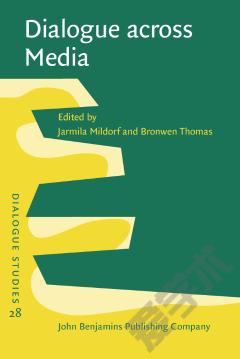Positioning in Media Dialogue. Negotiating roles in the news interview.
This book proposes a socio-pragmatic exploration of the discursive practices used to construe and dynamically negotiate positions in news interviews. It starts with a discursive interpretation of âpositioningâ, âroleâ and âchallengeâ, puts forward the relevance of a distinction between social and interactional roles, demonstrates how challenges bring to the fore the relevant roles and role-components of the participants, and shows that in news interviews speakers constantly position and re-position themselves and each other through discourse.The discussion draws on an empirical fine-grained analysis of a 24-hour corpus of news interviews on Israeli television and a corpus of media references. The author postulates a discrepancy between interlocutorsâ normative expectations, which presuppose an asymmetrical division of labor, on the one hand, and real-life practice, which exhibits partial symmetry in speakersâ selection of discourse patterns as well as reciprocity in the use of challenge strategies, on the other. Special attention is given to irony and terms of address, which are shown to act as the center-points of satellite challenge strategies, geared as an ensemble toward the co-construction of reciprocal positioning. The analysis of three case studies further sheds light on the negotiations of intertwined positionings in context.
{{comment.content}}








 京公网安备 11010802027623号
京公网安备 11010802027623号